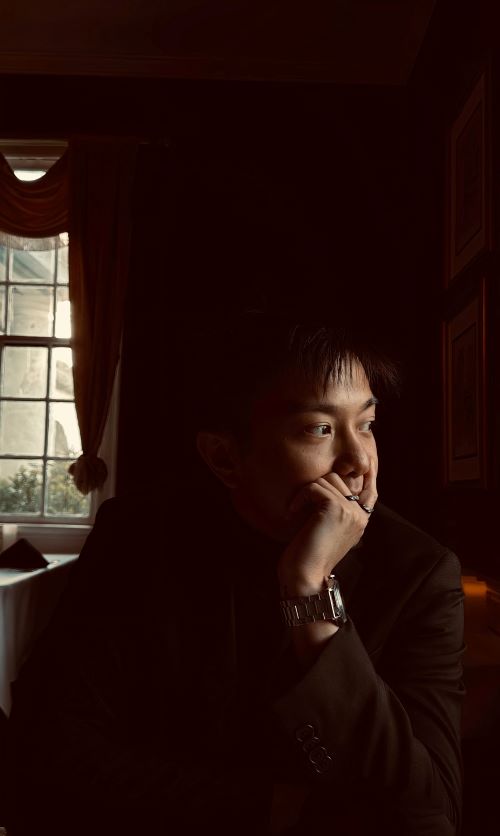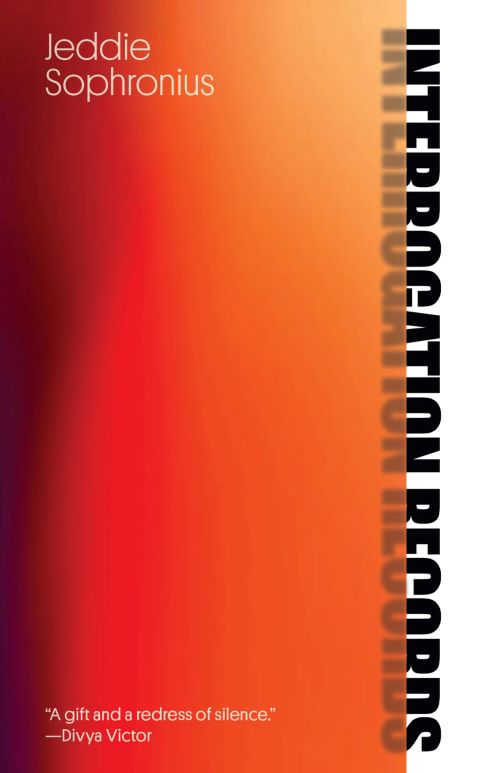1.Do not say something happened; do not say nothinghappened. You visit the museum at Lubang Buayawhere your government decided: everythingthat has to, will happen, in its own time. Everythingthat had to, was there, since the beginning of time.“This is what happened.” An undisputed argument.You circle the outside first, the lawn and garden. You seethe command post, the torturing verandah, the public kitchen,and the well of death—from which the crocodile’s pitearned its name. This is the house the rebels used to plotthe kidnapping of your generals. This is the verandahthe rebels used to arrest and torture your generals.This is the kitchen where the women prepared mealsfor the rebels. And this is the well where the rebels dumpedyour generals’ bodies. Each site is filled with dummies.The rebels: faces full of bloodlust. The generals: helpless,stripped to briefs and bare chests. Each figure frozenin time, forever remembered in fervor or fear. At the topof the stairs, statues of the seven generals remain,and on top of them stands the giant Garuda,its wings spread, its chest donning the Pancasila shield,its tridactyl feet resting on a scroll inscribed with the nationalmotto: Bhinneka Tunggal Ika, Unity in Diversity. 2.You enter the museum, a static voice recorder on loopgreets you, its age probably twice yours.The corridors are dim and cold, they showcasethe dioramas of communists, one next to another. Eachwith a plaque explaining what they did, where,when (but never why). Small figurines of mentorturing or killing other men in fields and streets,while brown tropical trees, clear sky, and white colonialhouses decorate the scene. The said killers look similarto their larger counterparts outside, furious, bloodthirsty,ready to kill. After reaching the upper floor and crossingthe skywalk, you enter the next building, where the dioramasgrow large again. You read a sign that says: The threatagainst the ideology of Pancasila is a matter of survivalto the nation and state of Indonesia. The museum is builtas one of the means to remind people of Indonesiathat there is a danger of latent communism. Behind eachglass is a room depicting how your generals were kidnappedfrom their homes, still in their nightwear and sandals. Thisis what Gestapu means, the kidnappings and subsequent murdersof your generals. This. Gerakan September Tiga Puluh,the 30th September Movement. This. The killings. 3.The generals, the generals—our revolutionary soldiers.Not the massacre, not the millions murdered in retaliation,not the mass starvations, mass sexual assaults, soldiersshooting the masses, not the religious oratorsadvocating their congregation to kill their infidel neighborsby the masses, not the millions more imprisoned withoutcharge or trial, all cramped in a tight space like chickensin a coop, not the torturing of the masses, not the orphansre-educated and forcibly moved into foster familieswho killed their biological parents, not the riversmassed with bodies, not the mountains and forest turnedinto mass graves, not the masses of political prisonersleft to starve on Buru island, not the masses todayworshipping whiteness and money, becausethe Westerners saved us from Communism, notthe income inequality that continues to sprawl after,not the racial hatred that still soars to this day.You can go on, but you’re already at the museum’s exit.The exit sign says: Thank you for witnessingthe dioramas regarding this barbarous incident.Do not let something like this happen again.Enough blood and tears have fallen in our Motherland.Therefore, guard and maintain our national unity.Farewell and Merdeka! You exit, the sun greets your skin.
Diorama of Ghosts
Feature Date
- August 16, 2024
Series
Selected By
Share This Poem
Print This Poem
“Diorama of Ghosts” from INTERROGATION RECORDS: by Jeddie Sophronius.
Published by Gaudy Boy in April 2024.
Copyright © 2024 by Jeddie Sophronius.
All rights reserved.
Reproduced by Poetry Daily with permission.

Jeddie Sophronius is the author of the poetry collections Happy Poems & Other Lies (Codhill Press, 2024), Interrogation Records (Gaudy Boy, 2024), Love & Sambal (The Word Works, 2024), and the chapbook Blood·Letting (Quarterly West, 2023). A Chinese-Indonesian writer from Jakarta, they received their MFA from the University of Virginia, where they currently serve as a lecturer in English. The recipient of the 2023 Gaudy Boy Poetry Book Prize, their poems have appeared in The Cincinnati Review, The Iowa Review, Prairie Schooner, and elsewhere. Read more of their work at nakedcentaur.com.
"In his poem 'The Sinner’s Mantra' Jeddie quotes the adage from Karl Marx’s 'Critique of the Gotha Program': 'From each according to their ability, to each according to their need.' And if I may, I would say: Jeddie’s great and significant ability, in his book, matches our great and significant need to learn more about the Indonesian killings of 65-66. So, I receive his book as a gift and a redress of silence. And every time we learn history through poetry that intentionally unsilences the archives, we are unwriting a master-narrative, we are writing and reading as a prevention of erasure, we are writing and reading as a cure for amnesia."
—Divya Victor, winner of the 2022 PEN America Open Book Award
“Interrogation Records is a stunning work by a keen poetic intellect. Writing at the intersection of history and remembrance, Sophronius contends with the multigenerational aftermath of state violence and the powerful forces of historical erasure. The ongoing inheritance Sophronius excavates in these lyrics is part-memory, part-burden, part-presence, part-silence. Each poem feels hard-won from the mysterious cultural machinery we call 'archive,' lifted into astonishing, often heartbreaking, utterance. In its possession of the visual field of the page, in its formal rigor, and in its virtuosic expression, Interrogation Records invites us on a remarkable journey.”
—Kiki Petrosino, author, White Blood: A Lyric of Virginia
“Interrogation Records lays bare a powerful affective archive of the 1965 mass killings in Indonesia and their aftermath. The poetry collection does not seek to depict the atrocity as an isolated historical event; Jeddie Sophronius instead takes on the more compelling, indeed the more pressing task of trying to understand and express how society remembers and forgets crimes of the state generations after that violence took place. How to make history carry collective meaning, how to make the past felt, how to make documents and archives and testimony hold affective power—these are the questions Interrogation Records explores, and indeed the political concerns that most urgently require poetic language. Sophronius constructs a series of dialogues across the multi-layered discourse about 1965, offering insightful critiques of public perception, state ideologies, and propaganda while engaging numerous voices—scholarly, testimonial, ghostly, intimate. From reflections on identity and belonging to biting satire of euphemisms employed by the state to obscure fear, pain, and the striking elimination of human life, Interrogation Records is a search for the fragmented traces of memory that scatter present-day Indonesia.”
—Lara Norgaard, translator
"Stunning and powerful, . . . Interrogation Records stands as a testament and testimony to voices who have been lost but who can be reclaimed through the power of art. The collection . . . demands us to contend ourselves as readers/spectators/gazers and our agency in watching from the distance. What struck me the most was the capacity of simple language to carry such devastating weight. . . Sophronius holds art as a mirror to the heftiness of such trauma and reflects the delicacy that poetry must play in the national conversation."
—Crispin Rodrigues, QLRS
Poetry Daily Depends on You
With your support, we make reading the best contemporary poetry a treasured daily experience. Consider a contribution today.




